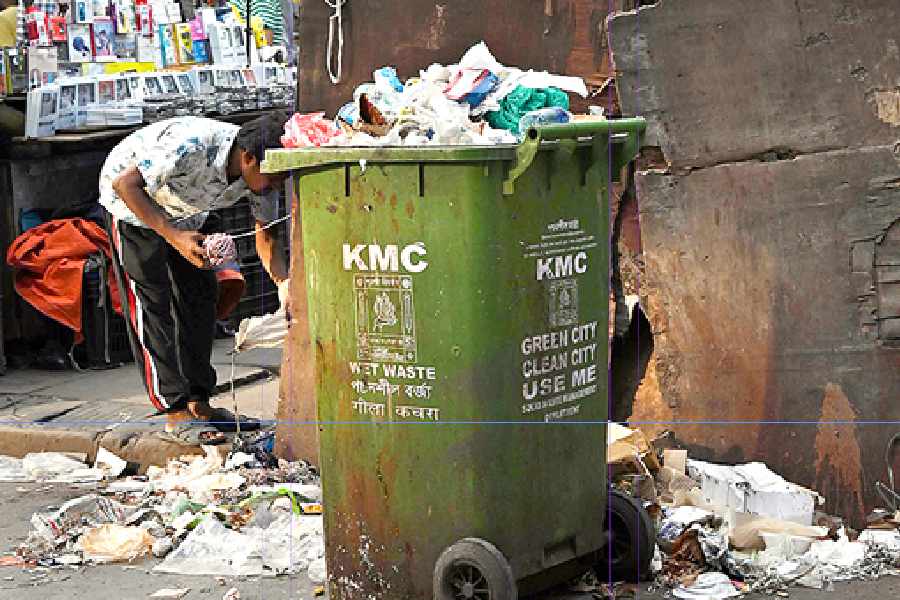The monsoon is here but it needed a stern message from chief minister Mamata Banerjee to remind civic bodies and the administration that clogged drains and canals and unattended garbage multiplied the dengue risk manifold.
"The drains are getting clogged. The dengue threat is imminent. Before the rains start, the drains have to be cleaned on a regular basis. Things that choke drains should not be thrown into drains. The drains are not dumping grounds," Mamata said at an administrative meeting at the state secretariat on Monday.
While criticising the civic bodies across Bengal for lack of initiative, a visibly angry chief minister pointed out what residents have been complaining about for years: piles of garbage left unattended even as the peak dengue season is imminent.
"Piles of garbage are lying here and there. The garbage on the roads remain on the roads. It makes fertile breeding grounds for mosquitoes and flies. Dumping garbage into drains and canals and along roads needs to stop," she said firmly.
"Garbage vats are not cleaned regularly. Garbage lie strewn around the vats. Aren't you ashamed?" she asked the audience, comprising ministers, civic body heads and senior state government officials.
The chief minister was particularly scathing on the Howrah city administration.
"Howrah has no conservancy system? Why? We have provided money. The drains are not cleaned. Monsoon means waterlogging. Howrah remains under water for two to three months," she said.
Dengue affects thousands in Calcutta and neighbouring districts every year, especially between the time the monsoon sets in and the end of November. But the civic bodies don't seem to learn any lesson. Piles of garbage and clogged drains and canals can be spotted in many areas.
According to a source in the state government, the state had reported a little over 76,000 dengue cases till November last year.
The dengue virus is spread by the Aedes aegypti mosquito, which can lay eggs even in a spoonful of water. Adult mosquitoes emerge a week after eggs are laid if the water remains undisturbed. So, public health experts urge people to drain out stagnant water at least once a week.
Accumulated waste almost always has discarded cups, tyres, coconut shells and bottles, each of which can turn into mosquito-breeding sites.
The website of the World Health Organisation (WHO) mentions that the "prevention and control of dengue depend on vector control".
"The best preventive measure for areas infested with Aedes mosquito is to eliminate the mosquitoes’ egg laying sites — called source reduction. Lowering the number of eggs, larvae and pupae will reduce the number of emerging adult mosquitoes and the transmission of the disease," the WHO website says.
This year, the monsoon made a meek entry in south Bengal on June 21. The city is yet to receive the first spell of formidable rain since the arrival. A system that is likely to take shape on the Bay of Bengal around June-end can trigger widespread rain in and around Calcutta, said a Met official.
A tour of the city on Monday suggested that the situation remained threatening. Piles of garbage were spotted in Ballygunge Phari, Gariahat and Dhakuria, among other places.
A garbage van was found parked at a bus stand in Gariahat. Barely 500m away, a garbage bin of the civic body was overflowing.











